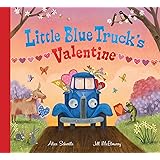Indigenous-owned Alberta company making better building blocks — with hemp
A new manufacturing plant in the northeastern Alberta community of Elk Point is blending hemp and other additives into concrete to make lightweight building blocks resistant to weather, fire and mould.
The company, called Asinikahtamwak — in Cree it means “works with rock” — operates from a 13,000-square-foot building on the south end of Elk Point, 215 kilometres northeast of Edmonton.
Frog Lake First Nations owns 51 per of the venture. Edmonton-based Natural Fibre Technologies owns 39 per cent and the Town of Elk Point has a 10-per-cent stake.
Frog Lake First Nations councillor Cliffton Cross is “excited and proud” about the new business that’s already started construction on a two-bedroom, 1,250-square-foot prototype show home in the First Nation community.
The company is also experimenting with smaller projects like greenhouses, ice fishing shacks and one-room cabins constructed from structural insulated panels, another product made at the plant.

“I believe it’s a part of our calling,” said Cross. “If we ever had a moment in history where we had to provide answers on how to become more sustainable, more safe,” it’s now, he said.
Asinikahtamwak CEO Tamrat Tekle said the partnership makes sense, given the First Nation’s need for affordable housing a short drive east of the manufacturing plant.
“The town of Elk Point has a need to create economic activities in the town,” said Tekle, “and Natural Fibre Technologies has a need to commercialize sustainable products and technologies.”
WATCH | Take a tour of Asinikahtamwak in Elk Point:
A processing plant is up and running in the community of Elk Point, a town about 200 kilometres northeast of Edmonton. Asinikahtamwak is an Indigenous-owned hemp block company that makes environmentally sustainable building blocks made of cement, water and fibre-based materials like hemp. The bricks have mold and fire resistant properties and weigh about half of a traditional cinder block.
In ancient times, everything from straw to banana leaves went into brick-making. Since then, hemp fibre has been developed, tested and used in building projects in France, England and Italy.
The high-performance building blocks being made in Elk Point are the same size as traditional cinder blocks but weigh only half as much. Asinikahtamwak says other benefits include reduced noise transmission, better thermal insulation and reduced cracking.
Made with a mixture of fibre, cement, water and special additives, the blocks have mould- and fire-resistant properties, said Michael Marty, clean energy manager for Frog Lake First Nations.
The material isn’t fully fireproof but could slow the spread of fire, he said. Mould resistance could help extend the lifespan of homes, he added.
“We actually have a lot of wetlands in our area, so our basements tend to become mouldy,” Marty said, “including my family home growing up.”
He said the aim is to move away from “one-generation homes and into seven-generation homes.”
250 blocks a day
The plant opened in the summer of 2024. It will operate with 15 full-time staff and some part-time positions. About half of the full-time employees are on the job now.
The facility is currently capable of manufacturing about 250 bio-fibre blocks per day, with an eye to scaling up to 1,000 in the next few months.
“There’s a lot of buzz right now about hemp,” said company co-founder Jesse Hahn, adding that waste wood from the forestry industry or municipal landfills can be used in place of the hemp fibre.
It’s also possible to make the blocks with flax, wheat, straw or bamboo.

Cliffton Cross draws a comparison between the manufacturing plant and its current and future products and the First Nation’s relationship with the bison.
“The buffalo in the past have provided food, shelter and clothing to our Nation members since time and memorial,” he said.
He believes Asinikahtamwak will provide “sustainable building materials for not only Frog Lake First Nations, but its partners and its neighbouring communities” — a home-grown solution that could grow beyond northeastern Alberta.
View original article here Source










